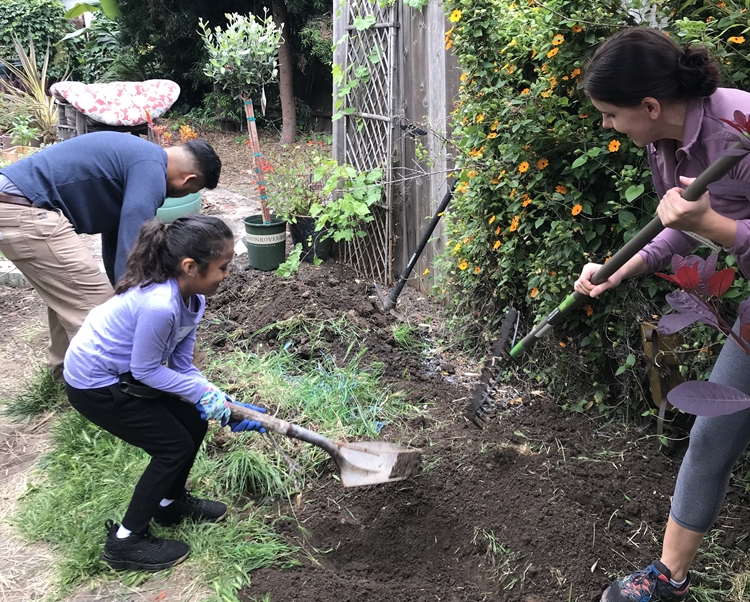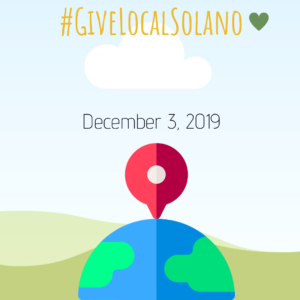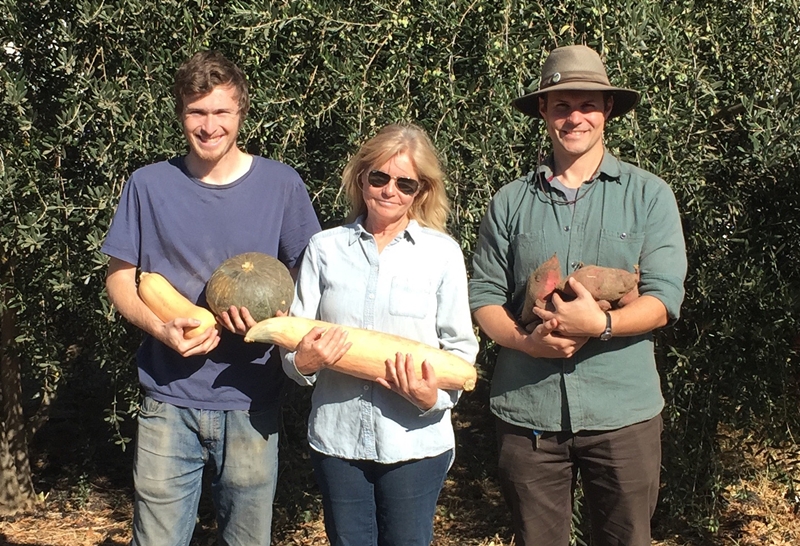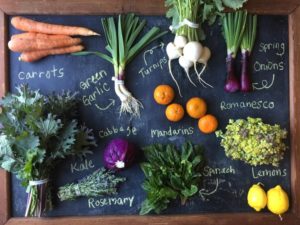Stocking Your Pantry for Uncertain Times
By Lisa Núñez-Hancock, Culinary Arts Instructor
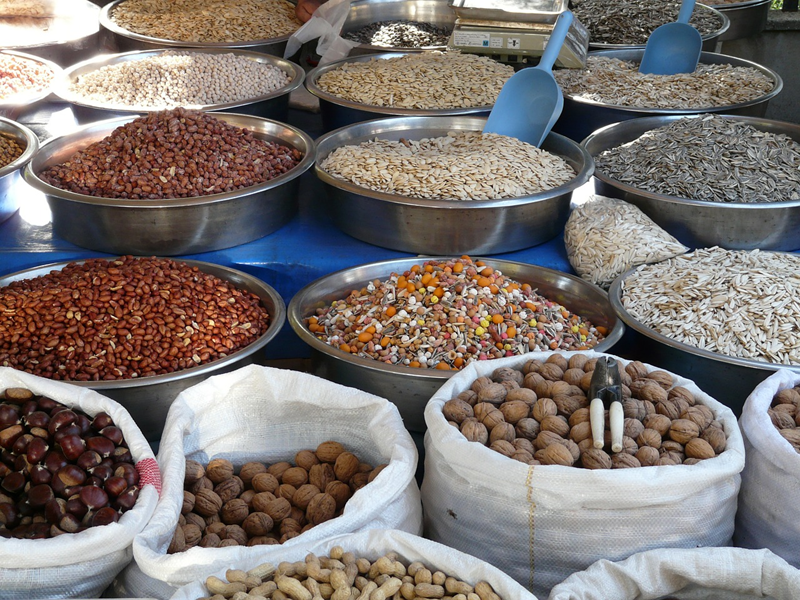
Whether it is fire season, an earthquake, a pandemic, the busy pace of life, or unexpected guests, it is always a good idea to have a well-stocked pantry of healthy, nonperishable items on hand. Eating healthy foods, maintaining a good gut microbiome, getting enough sleep, and minimizing stress are all important to optimum health.
Having nutritious staples in your pantry will steer you in the direction of eating better and staying healthy. Beans, legumes, whole grains, dried pastas, brown rice and rolled oats are all foods with a long shelf life and can be a base for soups, stews, salads and grain bowls. Combined with fresh seasonal vegetables and fruits, eggs and sides of meat, if desired, the variation of nutritious meals you can create with basic staple foods is endless.
In no way am I implying that you should be stockpiling or hoarding food. That is ultimately wasteful and not neighborly. I also recommend practicality and economy when furnishing your pantry. Purchasing local products whenever possible supports local farmers and food crafters, and benefits both the local economy and our immediate communities.
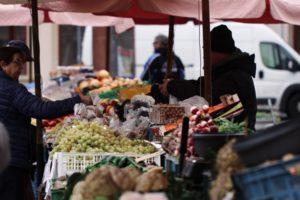
There is a culinary pleasure and satisfaction in throwing open a well-socked cupboard and being able to create a meal on the fly. Of course, there is Google and you could get someone else’s recipes, but there is a lot to be said for being creative, inventive and spontaneous, in life in general, and especially in the kitchen.
Beans and legumes have a good shelf life and are a healthy source of essential vitamins and minerals. They are an important plant-based protein and a good source of fiber. They are easy to prepare and versatile in recipes. Rancho Gordo, a company specializing in heirloom beans and located in Napa, stocks a selection of glamorous beans in a rainbow of colors and flavors. In my pantry right now, I have Marcella white, Midnight black, a beautiful purple bean called Aycote Morado, and a quirky heirloom called Vaquero (I love them — they are spotted black and white and remind me of miniature cows). All beans are wonderful and make delicious one-pot soups and stews.
Grains! If any of you have attended my cooking workshops, you know I am all about the grain bowl, a bit of a fanatic in fact. Ancient grains like quinoa, millet, farro, bulgar and amaranth, to name just a few, are healthy for you, and full of important nutrients, minerals and essential fiber. Although not local, I have been having a long-distance relationship with Bob’s Red Mill for many years and his grains makes me happy and healthy more than I can tell you!
Dried pastas are always good to have on hand, especially if you have children and picky eaters in your home. Combined with a variety of innovative herb and nut pesto sauces or tomato-based sauces that you can make from your garden’s yield or CSA box. Add shelf-stable olives, capers and marinated artichokes to create pasta dishes that are easy and quick to make, and a filling meal for one or a group. Locally produced Baia Pasta in Oakland is a good source.
Which brings me to the subject of canning and preserving. If you are growing your own vegetables, a member of a community garden, get CSA boxes, or frequent your farmers market, you should know how to can and preserve your produce, so as not to waste a bit of nature’s beautiful bounty. Your homemade canned products will be a “lush” addition to your pantry of staples, as well as a source of pleasure when cooking with them. I can’t tell you the satisfaction of cultivating a plant, harvesting it, and “putting it up” (on your pantry shelf or in your “root cellar”). Knowing where your food comes from, how it was prepared and that you created canned tomatoes from your summer crop or your own delicious pickles and jams is truly a heightened experience.
Although not necessarily shelf stable, don’t forget an important realm of crafted foods — probiotics like sauerkraut, pickles and fermented vegetables. They must contain lactobacillus acidophilus, which is essential for good gut health and proper immune functioning.
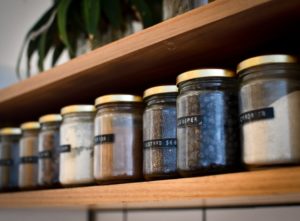
And especially, don’t forget the spices! Think of your spice drawer as a medicine cabinet. Spices not only make food taste better, they are medicinal, have healing properties that will boost your immune system, add much needed spice to life, and keep you healthy.
A short caveat: I have listed local food sources, but I understand that not everyone can afford these items. The basic staple list can be adapted to fit your budget with an eye to supporting our local food producers when possible.
Suggested Items for Stocking Your Pantry
Below are some items as well as local sources. You can find locally sourced staples at some of these retail shops and restaurants.
Beans
- Rancho Gordo
Grains
- Bob’s Red Mill, Community Grains
Pastas
- Baia Pasta, Community Grains
Rice & Noodles
- Lotus Foods
Olive Oil
- Il Fiorello, De Vero, Katz & Company, Soul Food Farm, Sepay Groves
Vinegar
- Il Fiorello, Sepay Groves, Katz & Company
Local Honey
- Be Love Farm, E.G. Lewellen’s, (check your CSA box add-ons)
Nuts
- Nut-N-Other Farms, Sierra Orchard, Cal Yee Farm
Dried Fruit
- Cal Yee Farm, Frog Hollow Farms
Sauerkraut
- Salt & Savor
Pickles
- The Cultured Pickle Shop
Tea & Coffee
- Numi (tea)/ Moschetti, Ritual (coffee)
Jam
- Erickson Ranch, Bridgeway Farms, Inna, Frog Hollow Farm
Hot Sauces and Salsas
- The Salsa Chick
Granola
- Nana Joes, Tom’s ‘Best Ever’, Frog Hollow Farms
Spices
- Whole Spice, Savory Spice Shop, Lhasa Karnak, Bazaar
Mustard
- Mendocino Mustard
Canned Fish
- Katy’s Smokehouse
Basic Baking Ingredients: flour, baking powder, baking soda, yeast
Note: Have a local source for some of these items we should add? Let us know at allison@sustainablesolano.org
Access Food Resources Here
Discover recipes with seasonal ingredients
Learn more about Community Supported Agriculture (CSAs) — boxes of produce from local farms
Learn what’s in season now
Find out more on our Local Food page
Explore our Community Resilience Resources for more food resources

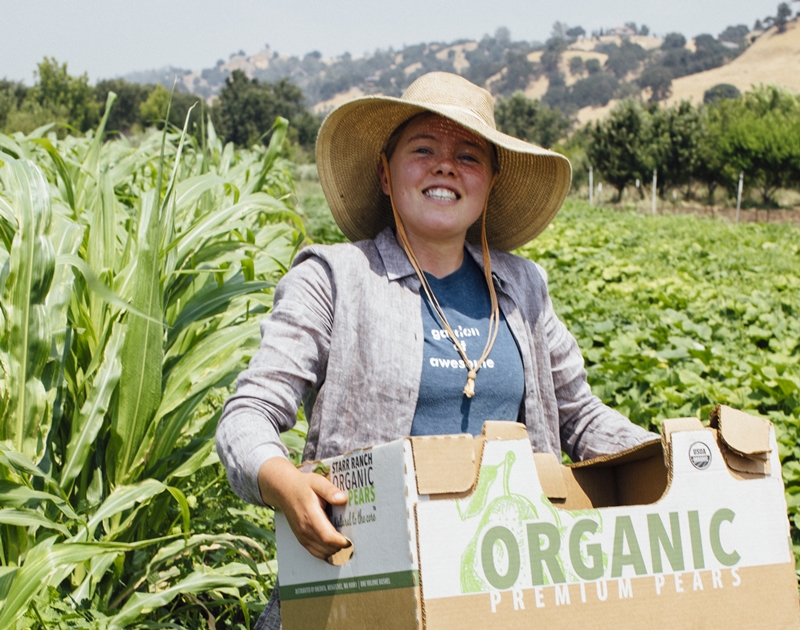
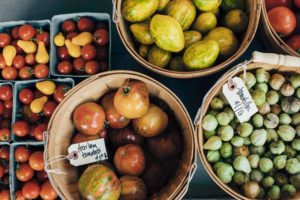
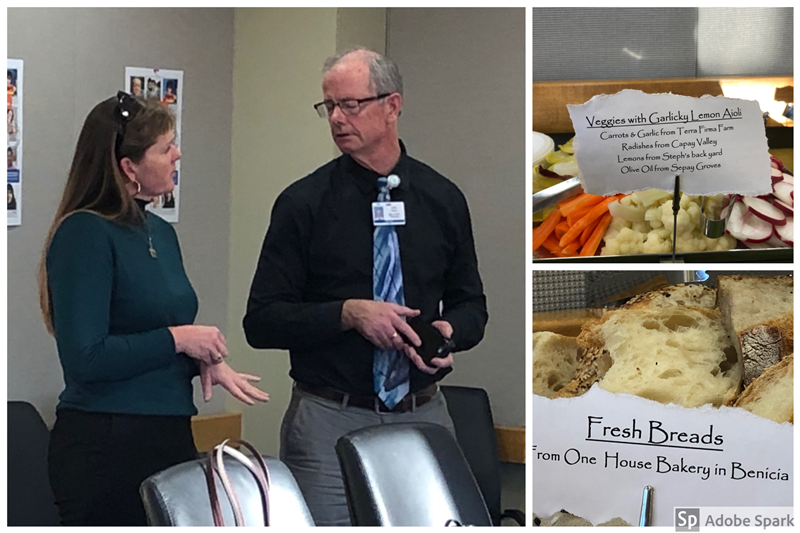
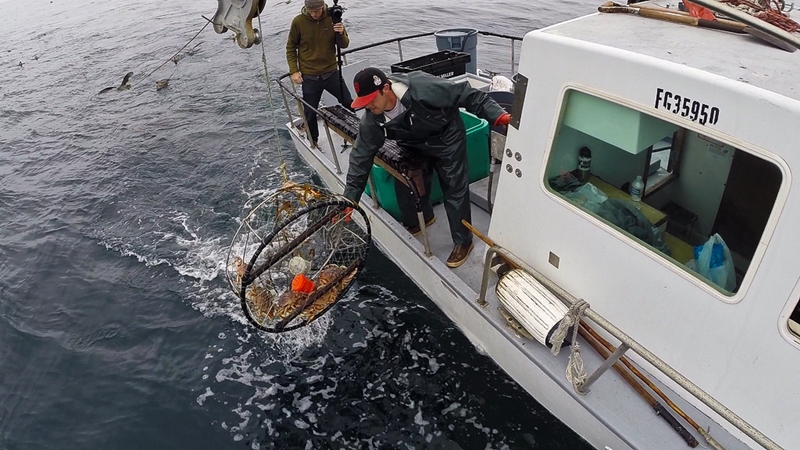
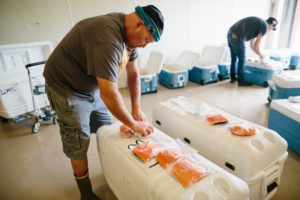 Below is a Q&A with Emily about
Below is a Q&A with Emily about 